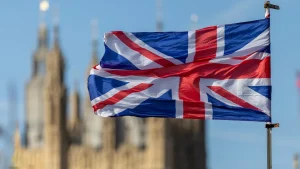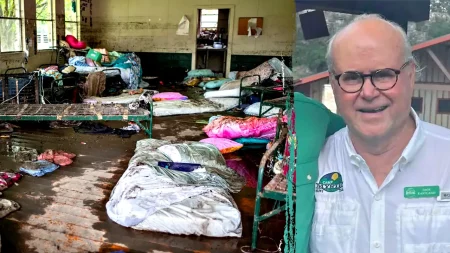Hamas’s Failed Attempts to Breach Gaza Restrictions Raise Concerns About Escalating Conflict
Security Forces Thwart Second Infiltration Attempt in Two Weeks as Humanitarian Situation Deteriorates
In a concerning development that highlights the ongoing tensions surrounding the Gaza Strip, security forces have successfully prevented a second attempt to breach the restrictions around the besieged territory, occurring just days after a similar failed infiltration. The two unsuccessful attempts within a fortnight have raised alarms about potential escalation in the region while underscoring the increasingly desperate conditions within Gaza that may be driving such actions.
According to security officials who spoke on condition of anonymity due to the sensitivity of the situation, the most recent attempt involved a small group attempting to circumvent existing checkpoints under cover of darkness. “This appears to be part of a coordinated effort to test the perimeter defenses,” said one official familiar with the operations. “Both attempts were intercepted well before any significant breach could occur, demonstrating the effectiveness of our surveillance systems.” While officials have remained tight-lipped about the identities of those involved, they confirmed that the individuals were detained for questioning and that no casualties were reported during the interception.
The Gaza Strip, home to approximately two million Palestinians, has been under a strict blockade for years, severely limiting the movement of people and goods. These restrictions have contributed to a humanitarian crisis that international aid organizations describe as increasingly dire. Sarah Levin, a regional director for International Aid Response, explained that “access to clean water, medical supplies, and basic necessities continues to deteriorate, placing enormous pressure on civilians caught in this protracted conflict.” The World Health Organization recently reported that Gaza’s healthcare system operates at minimal capacity, with hospitals facing critical shortages of essential medicines and equipment. Against this backdrop of deprivation, desperate measures to circumvent the restrictions become more understandable, if not inevitable.
Historical Context and Regional Implications
The security situation surrounding Gaza has been volatile for decades, with periodic escalations punctuated by uneasy ceasefires. These recent infiltration attempts come amid growing regional tensions and shifting diplomatic alignments in the Middle East. Dr. Ibrahim Al-Masri, a political analyst specializing in Palestinian affairs at the Center for Regional Studies, observes that “these incidents, while unsuccessful, reveal the failure of current policies to create sustainable security or address the legitimate grievances of Gaza’s population.” He further noted that continued isolation of Gaza has historically strengthened extremist elements while undermining moderate voices advocating for peaceful resolution.
The international community has responded with mixed messages to the situation. Western diplomats have emphasized the importance of Israel’s security concerns while urging proportionate responses and increased humanitarian access. Meanwhile, regional powers have called for immediate lifting of restrictions, with Turkey and Qatar particularly vocal in their criticism of the blockade. “The cycle of violence and counterviolence serves no one’s long-term interests,” stated UN Special Envoy Martin Keller during an emergency briefing. “A comprehensive approach addressing security, humanitarian needs, and political aspirations remains the only viable path forward.”
Security experts warn that failed infiltration attempts could potentially lead to more desperate and dangerous tactics. “When conventional methods of circumventing restrictions fail repeatedly, there’s always concern that those determined to breach the perimeter might resort to more extreme measures,” cautioned former military intelligence officer Colonel (Ret.) David Stern. The Israeli Defense Forces have reportedly enhanced their surveillance capabilities along the perimeter in recent months, implementing advanced monitoring systems that combine physical barriers with technological solutions. Palestinian rights advocates argue, however, that such security-focused approaches without addressing underlying political and humanitarian issues merely postpone rather than resolve the fundamental conflict.
The Human Cost and Path Forward
Behind the security incidents and geopolitical maneuvering lies the daily reality faced by Gaza’s civilian population. Families struggle with limited electricity, often available for only a few hours daily, while unemployment rates hover around 50 percent—among the highest globally. Young people, who constitute a majority of Gaza’s population, face particularly bleak prospects, with limited educational opportunities and virtually no path to economic advancement. Mohammed Zayad, a 28-year-old engineering graduate who spoke via video call, expressed the frustration felt by many: “We are educated, capable, and want nothing more than to work and build normal lives. Instead, we’re trapped in an open-air prison with no future in sight.”
International mediators, including Egypt and the United Nations, continue efforts to broker arrangements that might ease restrictions while addressing security concerns. Recent proposals have included expanded fishing zones, increased commercial imports, and additional work permits for Gazans in neighboring territories. However, progress remains elusive as fundamental issues of sovereignty, governance, and long-term political settlement remain unresolved. The failed infiltration attempts, rather than being viewed in isolation, should be understood as symptoms of this deeper impasse, according to diplomatic sources involved in the negotiations.
As the sun sets over Gaza’s crowded neighborhoods and security forces maintain their vigilant watch along the perimeter, the dual failures to breach the restrictions might appear as tactical victories for security operations. However, they simultaneously highlight the strategic failure of current policies to create conditions conducive to lasting peace. Until a comprehensive approach that balances legitimate security concerns with human rights and political aspirations emerges, such incidents will likely continue—each carrying the potential to trigger wider confrontation in this perpetually volatile region.
Humanitarian Organizations Call for Urgent Intervention
The deteriorating situation has prompted humanitarian organizations to intensify their calls for immediate intervention. Doctors Without Borders recently published a comprehensive report documenting alarming increases in malnutrition rates among children in Gaza, while water quality continues to decline precipitously. “We’re seeing preventable diseases spreading due to compromised sanitation systems and limited medical resources,” explained Dr. Hannah Torres, who served in Gaza for six months before being rotated out. “The psychological trauma experienced by the population, particularly children who have known nothing but conflict and restriction, presents another health crisis that receives far too little attention.”
Economic experts point to the systematic destruction of Gaza’s productive capacity under the blockade. Once known for its agricultural exports, textile manufacturing, and fishing industry, Gaza’s economy has been reduced to dependency on international aid and limited remittances. Dr. Robert Mackenzie, an economist specializing in conflict zones, noted that “the human capital waste is perhaps the most tragic aspect—talented young people with tremendous potential forced into unemployment or dangerous smuggling operations simply to survive.” Recent economic assessments suggest that lifting movement and access restrictions could potentially triple Gaza’s GDP within five years, creating sustainable livelihoods that would reduce incentives for desperate measures like the recent infiltration attempts.
Religious leaders from various faiths have joined human rights advocates in urging a more compassionate approach to the crisis. “Whatever one’s political perspective, the suffering of innocent civilians demands moral action,” stated Rabbi Daniel Goldstein, part of an interfaith initiative for peace. “Security concerns are legitimate, but they cannot justify collective punishment.” As diplomatic efforts continue behind closed doors, grassroots organizations on both sides of the conflict work to build bridges of understanding, recognizing that sustainable peace requires acknowledging the humanity and legitimate aspirations of all involved.
The failed infiltration attempts of the past two weeks represent not just security incidents but moments that illuminate the larger tragedy of a seemingly intractable conflict. They stand as reminders of the urgent need for fresh approaches that recognize both immediate humanitarian imperatives and the necessity of addressing root causes. As one veteran diplomat reflected, “Every failed breach, every rocket, every airstrike represents another missed opportunity to break the cycle.” Until such a breakthrough occurs, the residents of Gaza and surrounding communities will continue living under the shadow of a conflict where even small incidents carry the potential to trigger devastating consequences.










